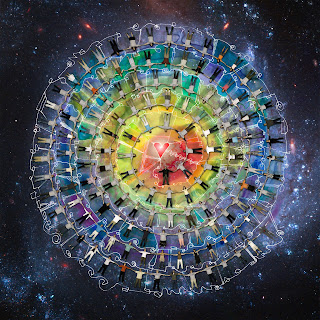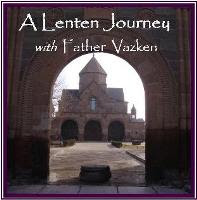Day 9: Listening
Lenten Recipe
Recipe 9: Stuffed Egglplants
Lenten Journey Day 9 – Listening
Day 9 is a turning point in your Lenten Journey. Many of the toxins in your system have been eliminated by this point. Be sure to nourish your organs with plenty of water.
Day 9 is also an appropriate time to begin taking inventory of the your Lenten Journey itself. Up until now, we have been inventorying habits, emotions, relationships and those things related to the journey. Now turn your attention to the journey itself – to these days we have spent together. Even though we are still toward the beginning of the journey we are realizing that it is a trip that will change us powerfully. Inventorying will create a map of the journey and remind you of the details, of the turns and twists in the road.
As we reflect on the Lenten Journey, we find that the changes we experiencing, physically, emotionally and in our relationships are good changes. They are patterns and habits that we’d like to carry with us beyond the 40 day period of Lent.
Because we know there is light at the end of the tunnel, we know this journey has a purpose and a goal. The destination is the goal, but we’re beginning to figure out that this Lenten journey prescribed to us by our forefathers, is not about a 40 day expedition. Rather, it is about a lifetime of being connected with the One, with the Ultimate which brings us happiness, peace and the true meaning of life.
The Psalmist reminds us, “Be still, and know that I am God.” In that stillness our hearing abilities are sharpened. In that stillness we hear sounds with our ears and also with our hearts.
Hearing with your heart? What does that mean? Today, you might understand it only as a possibility, but it’s exactly for that reason that I ask you take a Lenten inventory. Just think how strange “listening with your heart” would have sounded ten days ago. But today you understand that it is a possibility. You understand that there is a possibility to see with your heart and to sense with your heart. You know that the heart is not merely a pump or a mechanical device, but it is something which has receiving and giving capabilities. The heart is a receptor, it responds to outside stimuli and at the same time it is provider, that is, a place from which our feelings sprout.
Hearing from the heart, implies listening. Begin with the receptor called the ear. Do we listen? Do we listen enough? Do we listen too much? Are there things that we should not listen to? What about times to listen? Are there times when we should shut down and not listen to anything? And in shutting down, will that allow the soul or the heart to listen?
In the Gospels we read of Jesus the incredible orator. He always has the right words. He is never at a loss for words in and at any occasion. He is always speaking to the times and events. He is bringing people together, charismatically drawing them to his message of love, his message of hope and his message of faith. He is never at a loss for words and even finds words where no one could have been imaged.
In the Gospel of John, Nicodemus says to Jesus, “Teacher, we know you are sent from God because no one can do the things that you do unless God is with him.” What a nice statement. You or I would have either blushed or thanked Nicodemus for the compliment. But Jesus, rather than acknowledging the compliment or thanking him, turns it around. He pulls, from what may seem like nowhere, the reply, “Unless one is born from above – born again – he cannot see the Kingdom of God.” (John 3) Jesus heard with his heart and answered accordingly. Nicodemus’ statement was not one for the ear, but had underlying meaning which Jesus perceived with his heart.
Jesus was never at a loss for words. In fact, the people of the time marveled and acknowledged that no one had ever spoken the way he had. And when we listen from the heart, we too will marvel that no one can capture us the way Christ can.
Yet, when the time came when it was necessary for Jesus to speak, he didn’t. He shut down. During his trial, Jesus is silent. The Evangelist Matthew writes, “… he gave no answer, not even to a single charge.” (27:14).
There are times to listen, times to talk, times when we shouldn’t talk, and times when we should not listen. Much of the difficulty that we endure in life is because we place importance on things that do not matter. We are hurt by words that should not matter in our lives. An insult or a put-down can devastate us, but only if we allow it.
Jesus, standing in front of his accusers, heard many things with his ears. But he was listening with his heart, and that type of listening allowed him to understandthe people around him. He looked at his accusers and saw his children. Likewise, when we listen with our heart, we begin to understand others.
Although we aren’t God and find it very difficult to stand in the way of these insults, through understanding we will not allow those verbal abuses and hurtful cursing to devastate us, nor will we allow them to destroy us. We understand those sounds as coming from places where there is no harmony. And in so doing we pray, for those who persecute us, and for those who are out of harmony. We pray that they may find the fullness of God, the love that He gives each of us, that same love that is in our heart.
We pray the prayer of St. Nersess Shnorhali,
O Christ, True Light, make my soul worthy to behold with joy the light of Your glory, in that day when You call me and to rest in the hope of good things in the mansions of the just until the day of Your glorious coming. Have mercy upon Your Creatures and upon me, a great sinner. (I Confess with Faith 21/24)





